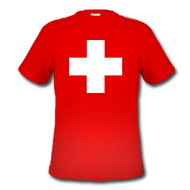On January 1, 2017, the new Swissness legislation will come into force. A last minute attempt to stop the new legislation – which some consider overly complex – has recently been refused. The Swissness legislation will regulate the use of all signs and labels that refer to the Swiss origin of goods or services, and include terms such as “Switzerland”, “Made in Switzerland” and “Swiss” as well as the Swiss cross, pictures of Swiss natural monuments such as the Matterhorn, or the names of Cantons or places in Switzerland.
The question whether a sign is a designation of Swiss origin will obtain a new urgency. Is a Swiss cross on a product an indication of its geographical origin, or does it function as a decorative object to express the consumer’s fondness of Switzerland and all things Swiss? Is the “Swiss edition” of a product a version specifically made for Switzerland, or is it made in Switzerland? While these questions are relevant under current law, too, the entry into force of the new legislation will certainly lead to an increased attention, not least of the competent authorities, to all uses of “Swiss” and/or the Swiss cross in branding and promotion.
Swiss cross on a T-Shirt: Probably legal, even if the products have been manufactured abroad.
Questionable: Edition for Switzerland or edition from Switzerland?
The new legislation on Swiss geographical indications further defines the origin of goods and services independently of their origin according to customs law and generally tightens the requirements over the current framework, namely for foodstuffs. Food products may in future only be labelled “Swiss” if at least 80% (by weight) of the raw material of the ingredients originate from Switzerland. For milk and milk products, even 100% of the milk must be of Swiss origin. Hence, a “Swiss cheese” must come from a “Swiss cow”.
For other products, in particular industrial products, at least 60% of the manufacturing costs must be incurred in Switzerland. Additionally, the manufacturing step that gives the product its essential characteristics must also take place in Switzerland. Certain exceptions apply to these calculations, both for food products and for industrial and commercial products. For industrial products, for example, the relevant manufacturing costs do not include the packaging and transport costs, the costs for selling the goods, the marketing and customer service costs, or the costs for natural products that due to local conditions cannot be produced in Switzerland. Equally, the costs for raw materials can be excluded from the calculation if these are not available in Switzerland in sufficient quantities.
Manufacturers not meeting the new requirements may refer to certain activities of designing or manufacturing in Switzerland or may refer to specific characteristics of the product (e.g. “Designed in Switzerland” or “Swiss research”), under the conditions that the entire activity (in this case the designing or the research) took place in Switzerland and that the term “Switzerland” is not highlighted in regard to the colour, size and style of the font in comparison with the rest of the information on the product.
The use of foreign geographical designations of origin in Switzerland will be subject to the law of the country of origin, i.e., if the requirements of the country of the (designated) origin are met, the product may bear the foreign indication of origin in Switzerland, too. There is, however, an important exception to this rule: If the Swiss consumer is deceived, the registration and use of a sign consisting of or containing a geographical indication in Switzerland is prohibited. This is an important exception, as Swiss courts assume readily that consumers are deceived by incorrect geographical indications already. For example, the Federal Administrative Court just recently found the trademark HYDE PARK to be deceptive for automobiles not originating from the UK and refused the registration of this mark for cars, despite the fact that the trade mark is protected in the UK, and therefore presumably meets the requirements for use of HYDE PARK for products not originating from England in the UK. Geographical indications are the “holy cows” for the Swiss trademark office and the Swiss courts, however, this case-law seems slightly over the top, not only for practitioners outside of Switzerland.
_____________________________
To make sure you do not miss out on regular updates from the Kluwer Trademark Blog, please subscribe here.




